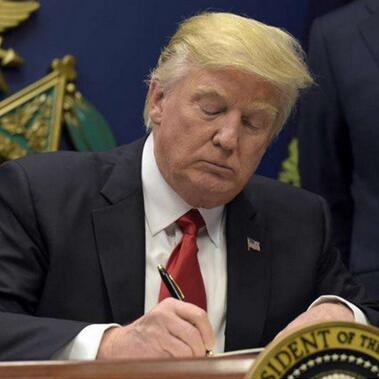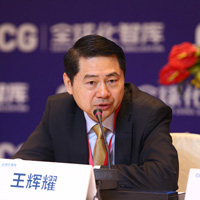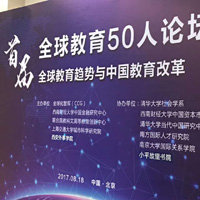-

【China Daily】At the vanguard
Generation that took renewed university entrance exams has helped to push China’s great changesOne of the earliest signs of China’s reforms after the "cultural revolution" (1966-76) was the decision to reopen universities and to select students through a national exam, called the gaokao.Statue of former Chinese leader Deng Xiaoping in Shenzhen, Guangdong province. Deng was in charge of science and education, the areas that he saw as the key to the future of the country. Sun Yuchen / XinhuaIn 1977, Deng Xiaoping was not yet paramount leader of China, but was in charge, at his own request, of science and education, because he saw these areas as key to the future of the country.The re-establishment of the gaokao preceded the historic 3rd Plenary Session of the Central Committee of the Communist Party of China, in December 1978, which formally endorsed "reform and opening up".In only 40 years, China has advanced from being one of the poorest countries in the world to upper middle-income status. In terms of the human development index, which the United Nations uses to measure population health and education in addition to GDP, the nation has moved from far below the world average to significantly above. Life expectancy has reached 77 years, only a few years below that of the most-developed countries. Plus, near-universal literacy and primary education have been achieved. The number of Chinese enrolled in universities has gone up tenfold since the late 1990s.Students in Baokang, Hubei province, prepare for gaokao on June 4, only a few days before the exam. Photos Provided to China DailyCandidates for gaokao in Beijing say hello to their parents after the examination in Beijing this June. Zhu Xingxin / China DailyThe people who started university in 1977-79 are known as the "xinsanjie", the new three classes of students. Only about 4 percent of the test-takers were admitted to university (compared with 75 percent today, according to Xinhua), so they were a highly skilled and motivated group.They were also more diverse than current college students - many were older, some had very difficult experiences during the "cultural revolution", and a high percentage were children of farmers. Many of the group reached prominent positions in all walks of life and are now approaching retirement age. They lived through, and contributed to, the astonishing growth of the last 40 years. The most prominent of the xinsanjie is Premier Li Keqiang, who took the gaokao in 1977 and studied law at Peking University from 1977 to 1982.The Center for China and Globalization(CCG)’s session on the 40th anniversary of the gaokao resumption on JuneIn June, the Center for China and Globalization(CCG) in Beijing organized a conference at which many xinsanjie talked about their life experiences and about the future of China.Four major themes were prominent in the statements at the CCG conference and in interviews with China Daily.First, no one predicted at the start of the reform process just how hugely fundamental the changes would be. They all praised the model of economic reform that achieved this.But, second, speakers agreed that it is now time to enact more reforms to encourage innovation and entrepreneurship.Third, many speakers emphasized the "opening up" part of the reform - they believe that trade and interaction with other countries are crucial.Finally, many speakers stressed the need for educational reform designed to encourage the innovation needed for the new economy and to achieve fairness, especially for students from outside the major cities.The opportunity to take the gaokao was life-changing. Wang Huiyao, who was sent to work in the countryside during the "cultural revolution" and is now chairman of the CCG and counselor of the State Council, China’s Cabinet, says: "Initially we were told to root ourselves in the countryside. We thought it was for our whole life." He said that life was very hard, "but the smart ones learned something in the countryside".He adds: "The merit system started with the gaokao. Credentialing systems and professional rating systems impacted the whole society. Everyone knew ’I have to work hard’." He also stressed the importance of international contacts: "(About) 600,000 students now go out each year. This keeps China open. You see lots of company founders and venture capitalists who returned."Peng Kaiping, chairman of the department of psychology at Tsinghua University, took the gaokao in 1979 and attended Peking University. He says: "The young generation was exposed to new ideas and new information. This was the beginning of Chinese reform. This was a great period in Chinese history."Chen Yongjun, professor of management at Renmin University of China and an expert on the Belt and Road Initiative, graduated from high school in 1972 and worked at a power station for six years before the gaokao gave him the chance to go to Xiamen University. He says that academics who remained in China were once jealous of others with jobs in the West, but now those who remained in China are better off. He stressed that the past 40 years have changed the lives of individual people and admitted to being surprised that China has become the second-biggest economy in the world.Education reformsChanging the education system to encourage innovative thought and to equalize opportunities throughout the nation is a key goal of many xinsanjie.Tang Min, counselor of the State Council, says "educational reform should not be limited to the gaokao; the whole system needs reform. We need innovative students, and lifelong learning is very important."Shao Hong, a member of the Standing Committee of the Chinese People’s Political Consultative Conference, says he is "proud of how the gaokao can facilitate mobility in society, but a disadvantage is that it forces students to memorize from a textbook."He argues that "it is hard to make the system fair. Every student wants to go to a famous university. They don’t want vocational education because it is not prestigious".Similarly, Tong Shijun, a philosophy professor at East China Normal University, says: "Working as a worker before going to university taught me to work hard and love science. It is important to emphasize the spirit of the craftsman. We should not stigmatize labor work."And Zhu Yongxin, also a member of the Standing Committee of the CPPCC, contrasts the situation in 1978 with now: "Teachers then were under pressure for the 11 years of the ’cultural revolution’, so they had a strong desire to learn new things. Young professors now are so burdened and the atmosphere is not as good. Now it is like primary school the teacher talks and the students listen."Lu Mai, secretary-general of the China Development Research Foundation, says: "The true meaning of reform and opening-up is to give people the freedom to make individual choices. When people quit education to be businesspeople, it proves they have choices."Zhao Shengchuan, dean of the School of Transportation and Logistics at the Dalian University of Technology, who took the gaokao in 1979, was from a small village in Hebei. He worries that people from the countryside now have fewer opportunities. "Of my 30 or 31 classmates at Beijing Jiaotong University, more than half were from the countryside. Now, most university students are from rich, urban families."He also argues that China needs to adapt its educational system to the new economy: "We need to restructure the educational system using case studies and interactive learning. The whole education system needs reform - universities can do only so much. We need to teach students to capture knowledge, work in teams and deal with others - real skills that will be used after graduation."Similarly, Ning Bin, president of Beijing Jiaotong University, questions whether his generation really did fulfill its obligations to the country. "The gaokao for the most part is good, but we have a burden of figuring out how to shape students to be more innovative," he says.Foreigners, tooThere were also some foreigners who went to university in China during those years and chose to build their lives in China. China Daily interviewed Jaime FlorCruz of the Philippines, who attended Peking University from 1977 to 1981 and later was CNN’s longtime chief correspondent in China. Ashok Pandey, from Nepal, attended Tsinghua University in the same years and is now vice-president for Nvidia APAC Operations. Roberta Lipson, from the United States, did not attend university in China, but has been an entrepreneur in Beijing since 1979 and is the founder and president of United Family Hospitals.FlorCruz was an anti-Marcos activist in Manila who traveled to China in 1971 with a group of other Filipinos for an educational political tour. While FlorCruz was in China, Marcos declared martial law in the Philippines. Since they could not return home, the group of Filipinos volunteered to work on a farm in the countryside of Hubei province.He says that the serious debates about the future of China were a highlight of his life: "My time at Peking University was one of the best times of my 40-plus years in China. China was already beginning to change, so I saw the before and I saw the after. It was a very vibrant period - not just on campus, but outside the campus."The best part was that I got to meet and study with this cohort from the classes of 1977, ’78, and ’79 - a very special group of people. Many of them had shared the same kind of social experiences of going down to the countryside for a few years or working in factories or serving in the army. They were very mature, very driven, very serious in their studies."Also, they had a historic mission to change China. The best part was the debates about how to change. We were discussing not just our textbooks but, especially outside the classrooms, we were discussing the big-picture questions."Describing his experiences in China, Ashok Pandey says: "I came to China when I was very young. China is the country where I really grew up and started to learn about the world. At that time, there were not a lot of foreigners living in China. Wherever I went, people were very nice and sincere, and they were willing to offer their help. I love this country, and I love people here. Chinese culture has become my nature."I appreciate what I’ve learned, what I’ve experienced, and the people I’ve got to know here. I feel like one of them. It is also about the opportunity in a place I think I can realize my full potential."As a senior executive in the tech industry, he sees the country’s huge progress in innovation. "China is already a leader in innovation, especially in the artificial intelligence area. It is now the world’s leading country in terms of papers published on AI and just behind US in respect to registering patents. This know-how and eagerness to embrace AI will propel China to the forefront of business and technology. They are also leading in super-computing. Combining AI with supercomputing will take them far ahead."Roberta Lipson says that after she first arrived in Beijing in 1979, she was required to live for years in a hotel for foreigners and saw few choices for goods or food in Beijing. "If you could go back in a time machine to 1979 and tell people what Beijing is like today, both from a material perspective and in terms of cultural richness, as well as the cosmopolitan nature of the city, nobody would believe you."I could not have envisioned what Beijing would be like," she says. "I’m tremendously optimistic going forward. I’m very proud of the development that has happened in China. I’m so fortunate to have been a firsthand witness to it, and I’m proud to have had my small part to play on the healthcare side. Recently, I’ve been granted a green card (permanent residence status). I consider Beijing my home and an integral part of my identity, and I’m proud that has been recognized."Chen Aimin, an economist who is now president of Xi’an International University, took the gaokao in 1978 and attended Sichuan University. Describing the growth of the past 40 years, she says: "It was an unprecedented miracle. I had no imagination about what things would be like 10 to 20 years later. Not in my wildest dreams did I think Chinese people would be so rich. China’s stable economic achievement over a long time is unprecedented. We have a stable society, low crime and a low unemployment rate."She poetically sums up the achievement and the challenges of the Chinese economy: "After spending 22 years studying and as an economics professor in the US, I came back to work in China because I saw a forest of vitality. Inside the forest, I saw that some trees were really ill, but we are working on those trees. I feel this forest is still quite healthy, and I’m confident the ill trees will be cured." (By David Blair)From China Daily ,2017-8-11
2017年8月25日 -

【新浪网】对话王辉耀:特朗普要查中美贸易 打的什么算盘
华盛顿时间8月14日,美国总统特朗普正式在白宫签署总统备忘录,要求美国贸易代表莱特希泽( Robert Lighthizer)调查所谓“中国迫使在华经营的美国企业转移知识产权的贸易行为”及对美国商业及就业的影响。特朗普为何这个时候开展对华贸易调查,此举将对中美贸易、中美关系造成何种影响,解决中美贸易“不平衡”的出路到底是什么?新浪国际自媒体联盟成员“文晶Talk”对话全球化智库(CCG)理事长、商务部经贸政策咨询委员会专家王辉耀。 文晶Talk:特朗普为何选择这个时候开展对中国贸易的调查? 王辉耀:特朗普从参选开始就对中美贸易有很大不满,美国对中国有三千多亿的逆差,而且不可持续。今年六月习特会上中国提出通过一些方式来解决这个问题,当时效果不错,关系得到缓和。中美百日谈放开了牛肉对华的出口,美国visa和master card也可以到中国使用。 但特朗普是一个商人,在这个方面吃亏的话,一定想办法这个便宜占回来,而且特朗普不光针对中国市场,他也骂日本、德国,也在和加拿大、墨西哥这些贸易有顺差的国家谈。 之前特朗普迟迟没有行动主要是因为在朝核问题上,美国还需要中国的帮助。但是朝核问题一直没有进展,而且越来越紧张,特朗普在美国国内面临着压力,他上台七个月了,必须拿出一些成绩。前两天中美最高领导人通电话确定特朗普将访华,在访华前,特朗普希望争取更多筹码。 另外中国目前所处的国际环境并不好,中国跟印度、南海还处在紧张态势。特朗普看重现在这样一个时机,对中国进行一定程度施压。 文晶Talk:“301法案”允许美国总统以单边制裁的方法来保护美国免收外国不公平贸易伤害。有资料显示,这个法案已经很长时间没有用过。特朗普此时启动这一法案,会对中美贸易造成什么样的影响? 王辉耀:肯定会造成巨大的影响,中国是全球化最大的支持者和推动者,全球化主要是经济全球化,说白了就是贸易和投资。如果美国发出这样的信号,欧洲再发出信号,对中国发起反倾销和高额关税,中国经济马上会受到很大打击。中美之间的贸易战是两败俱伤的,虽然美国会有所损失,杀敌八百自伤一千,但是美国比中国财大气粗,底子要比中国厚的多。如果真正进入贸易战,美国承受能力比中国强。美国经历过金融危机,但中国没有。中美关系,实际上是整个全球化战略上最核心的关系,是不能出问题的。目前中美之间三千多亿美元的顺差,换算成人民币2万亿,这是个很大的数,而且直接影响就业,直接影响中国国民经济。并且,中美贸易作为中美关系压舱石,一旦不稳,也会引起其他矛盾,引发更大的负面效应。 文晶Talk:特朗普这个时候对中国的施压,是否与这段时间朝核事态升级,比如金正恩扬言发射导弹到关岛有关? 王辉耀:我觉得有,特朗普一直在等中国对朝核问题采取行动,但好像没有起太大作用,所以特朗普会在这个问题不断对中国施压。我这次去延吉中朝边境,中国已经在朝鲜问题做了很大让步,包括取消海产品、农产品进口,势必会对当地经济产生巨大影响。 文晶Talk:那么在您看来,中美之间有什么办法可以解决当前的贸易问题? 王辉耀:中美之间现在有很多值得合作的地方,第一,基础设施领域。中国的基础设施达到最好的水平,正好美国也缺乏资金。特朗普推出几万亿的基础设施计划还未得到落实。中国有资金和设备,在基础设施方面,可以跟美国很好地弥补。 第二,能源。中国是世界上进口石油第一位的国家,也开始购买美国的石油。美国是一个产油大国,页岩气开发后,能源出口是富余的,中国可以更多进口美国的能源产品,包括天然气,这样可以减少一部分不平衡。 第三,高科技产业。目前,硅谷的高科技公司进入中国比较困难,比如像谷歌、安卓系统、无人汽车,进入中国是受阻的,这也是美国不满意的方面。另外金融行业也可以适当开放,比如现在中国不用信用卡,而是用微信、支付宝来支付,银行业开始做适当开放,允许美国的信用卡进入。 第四,制造业。曹德旺的福耀公司在美国投资了10亿美元,创造了三千个工作机会。类似大曹德旺、小曹德旺这样的企业很多,中国的企业正在经历升级换代,如果劳动力成本和人员成本在美国价格差不多的话,我更愿意到美国建厂,更接近于市场,服务于上下游的客户。 我们找到中美贸易经济共赢的方向,就是说,在其它增量上多下功夫,在存量上减少赤字,还是可以做很多的事。文章选自新浪网,2017年8月15日
2017年8月25日 -

【中国新闻网】国务院侨办专家咨询委员会在京成立
中新社北京8月22日电 (付强 马秀秀)中国国务院侨办专家咨询委员会大会22日在京开幕。国务院侨办党组书记许又声在会上宣读了《国务院侨办关于成立国务院侨办专家咨询委员会的决定》(下称“决定”)。 决定指出,为汇聚华侨华人高层次专业人士和海内外涉侨相关领域的智慧和力量,服务国家创新发展和侨务工作的科学发展,国务院侨办决定成立专家咨询委员会。 国务院侨办专家咨询委员会下设政策法规、经济科技、华文教育、文化传媒四个分委员会,拟聘请丁肇中、朱经武、邓文中、王辉耀、庄国土、郑晓瑛、王超群等280位华侨华人高层次专业人士和涉侨相关领域专家学者担任委员,任期4年。 决定明确了专家咨询委员会的主要职责,即紧密联系华侨华人高层次专业人士和涉侨相关领域专家学者,发挥多学科、宽领域、专业化优势,开展交流合作、积极建言献策,为促进国家创新发展和侨务工作科学发展提供智力支撑。 开幕式期间,国务院侨办、北京市有关部门负责人还为委员代表颁发了聘书。文章选中国新闻网,2017年8月22日
2017年8月25日 -
李稻葵:未来消费是新趋势更是一场革命
李稻葵,全球化智库(CCG)学术委员会专家,清华大学中国与世界经济研究中心主任。 从2007年开始到现在,整整10年间,中国经济已经发生了结构的剧变,可以称之为“静悄悄的革命”。 经济结构最基本的结构是资本跟劳动力相对稀缺程度的比例,这个已经发生了剧变。10年前,中国相对而言还是劳动力比较充足、资本相对短缺的经济体。2007年是个拐点,消费占GDP比重是过去30年来最低的,2007年后开始出现上行的变化。2008、2009年,基本上同样的时间段,劳动收入占GDP的比重开始上升,工资收入在整个初次分配中的比重上升。 这也意味着,劳动力和资本相对短缺的程度发生剧变。劳动力从2007年开始变得珍贵而稀缺。工资开始上涨,而且增长速度超过民营GDP。同时,城市劳动力、产业劳动力大军增长速度开始放缓,老百姓的初次分配开始改善,以劳动力挣钱的人的收入速度加快,这是革命性的变化。这个变化带来的后果是消费的上升。为什么?因为中国社会的消费主力是中低端收入水平的打工族。这些消费人群就看工资涨得快不快。只要工资涨得快,消费就涨得快;如果工资超过GDP增长速度,消费也就超过GDP的速度。因此,这场世界性的革命,正影响未来30年的收入分配大格局。 消费本身也酝酿着一场革命。消费的增长速度非常迅猛,刚好又遇上了以互联网、数据科技、人工智能为代表的各种新科技形态。新科技和消费增长共同带来了消费革命,尤其是零售端的革命。 整个消费的链条都在经历一场技术的革命,这个过程需要批发、物流、零售、售后服务共同更新。但我认为,这里存在两个误区:首先,我不认为这场科技革命在消费领域或者零售领域就是降低成本。这场消费革命表现在零售业不仅仅是降成本,更多是带来了对消费者认可的提升,消费满足感的提高。因此,新的零售革命并不完全是降低成本。无人商店、无人零售如果仅仅是为了降成本,恐怕这个游戏就错了。无人商店一定是能够给消费者提供比有人商店更好的福利和帮助,比如真正做到24小时不停业,提供更多元化的服务,从而使消费者有更多的满足感。 其次,我认为新零售革命和传统零售不是外界认为的替代、竞争的关系。假如无人商店能给我更多体验,我相信无人商店和有人商店可以并存。有人商店里可以问个路,甚至晚上睡不着觉跟他去聊聊天;无人商店可以让我精准知道有没有货。所以,新的零售和传统零售不是简单的替代关系,而是长时间内以共同生存、共同发展、互为补充的形态并存。 我坚信,未来20年的消费是新趋势,更是一场革命。这场革命与科技革命结合在一块,将在全球范围内成为我们拿出手的、值得骄傲的新亮点。文章选自中国社会科学网,2017年8月23日
2017年8月24日 -
金灿荣:金砖国家成全球治理重要平台
金灿荣,全球化智库(CCG)学术委员会专家,中国人民大学国际关系学院副院长、教授、外交学专业博士生导师。 中国人民大学国际关系学院副院长金灿荣在第四届金砖国家经济智库论坛的研讨环节指出,金砖国家合作和“一带一路”是全球经济脱困的新办法。 他谈到,在很长一段时间,美国、欧洲、日本在全球治理的供给上是起作用的。现在全球治理的供给方出问题了,供给下降需求上升,这个时候就需要有一些新的办法,发挥金砖平台的作用是一个办法,另外一个办法就是“一带一路”。“一带一路”是公共的产品,它的性质是一个公共平台,从全球治理赤字的角度来讲,我们有更多里有去做好这两件事。虽然“一带一路”还有金砖国家合作困难重重,但稳扎稳打成功的希望还是很大。 金灿荣同时建议中国第一要加强与美国的合作,第二要联手欧盟,借助先进的技术含量、管理经验,共同做好这两件事。文章选自思客,2017年5月26日
2017年8月24日 -

【China Daily】Wang Huiyao: Exam’s resumption was start of a new era
Wang Huiyao, president of the Center for China and Globalization(CCG) and vice-chairman of the China Western Returned Scholars Association/Chinese Overseas Students Association.It symbolized how people could change their destiny with the power of knowledge and created a glimmer of hope for all studentsChina will mark the 40th anniversary of reform and opening up later this year. As a matter of fact, the real starting point of China’s reform and opening-up policies was the national college entry examination in the winter of 1977, the first after university education was reinstalled.Deng Xiaoping proposed two historic policies after he returned to office in 1977-resumption of the national college entrance examination, or gaokao, and the dispatch of Chinese students abroad. The former measure, in particular, was crucial to cultivating talent and intellectuals needed for China’s reform and modernization. The reopening of college doors after over 10 years of closure brought a life-changing opportunity to students then.The resumption of the gaokao symbolized the arrival of a new era in which the value of knowledge and talent would be highly respected and appreciated. It also meant the transition of China from chaotic to stable, where people were able to change their destiny with the power of knowledge. The resumption of the gaokao created a glimmer of hope for all Chinese students and had a profound impact on national development. More significant, it served as a prelude to the unveiling of the reform and opening policies and put in place a system to cultivate talent to ensure their successful implementation.The class of ’77, ’78 and ’79 can be called the generation of China’s reform and opening-up policies, because their destiny being closely bonded with this historic turning point. They have witnessed, experienced and implemented China’s reform and opening-up policies and safeguarded the achievements and progress. They have made every endeavor and seized every opportunity to fulfill the responsibilities and ambition that befell their generation, and passed on an invaluable intellectual heritage to younger generations.Hence, the Class of ’77,’78, and ’79, as a group of people with a unique experience and role in China’s society, deserve more attention and research by our think tanks. The book, The Reform Generation - Generation of China’s Reform and Opening up, is not only a recollection and commemoration, but also reflection and impartment.This year marks the 40th anniversary of the resumption of the gaokao. Also, China’s reform and opening-up policies will enter the 40th year of implementation.The past four decades have witnessed the most dramatic changes that took place in China, from a country whose national economy was on the verge of collapse to the world’s second-largest economy, the largest trading nation, the largest source of international tourists and students. China’s overseas direct investment has already surpassed its foreign direct investment and the country has become a net investor.With the introduction of the Belt and Road Initiative by President Xi Jinping, China is becoming a new engine that pushes globalization forward. With all the resources and achievements in the past 40 years pooled in this effort, China will create another splendid milestone in its modern history. However, it remains a question whether this milestone will be fleeting like a shooting star, or be followed by the rise of a great power in the real sense. The key to this question still lies in the reform and opening-up policies.The personal experiences of the reform and opening up of a generation are valued as the eternal wealth of this era. Listening to their voices and reviewing their experiences are important to promote the spirit of reform and opening-up. Individual experiences might be more riveting and clear than a summary of abstract contemporary events in the long run.Undoubtedly, education is the one of the pillars for a country. One of the most important tasks of China’s reform lies in the college entrance examination system and the education system. Gaokao reform was actually the beginning of China’s reform and opening-up. However, we nowadays still face issues such as how to further promote reform and openingup, how to improve university education, the college entrance examination system and talent mechanism, and how to participate in globalization.Since the beginning of the 21st century, China has made cultivation of talent a priority of the nation. President Xi has also pointed out that human resources’ characteristics and role is the first resource of economic and social development. Competition for talent has become the core of comprehensive national strength.Furthermore, we hope that the spirit of the "reform and opening-up generation" plays a constructive role in the process of innovation and development during the era of globalization.From China Daily,2017- 8-11
2017年8月24日 -

【中国社会科学报】全面提升中国教育理论影响力
“预计到2030年,中国将成为世界教育中心之一。”8月18日,在全球化智库、西南财经大学中国金融研究中心等单位主办的首届全球教育50人论坛上,国家教育发展研究中心教育发展战略研究室主任高书国如此表示。 高书国将中国教育发展分为跟跑、并行、领跑三个阶段。国家教育发展研究中心的一项跟踪研究显示,1950年,中国人均受教育年限仅相当于美国的11.9%,2030年则可能达到美国同期人均受教育年限的92.2%。而且由于中国人口基数大,大约有六七亿中国人将超过美国人的平均受教育水平。“2030年我国将成为教育强国,同时进入人力资源强国行列。” “要对中国教育充满自信,我们在很多方面可以引领世界。”西安外事学院校长陈爱民在对比中美教育特点时表示,中国集中力量办大事的体制优势,在推动教育发展方面也彰显出强大力量。在中央部署下,全国高校能够朝一个方向努力,共同争创“双一流”。 在谈到中国未来如何建设教育强国时,高书国认为,要构建与中国大国地位相适应的开放教育体系,建立更多的与全球教育体系的联系和纽带关系;成为世界教育改革和发展的引领者,在教育思想、教育改革、教育质量等多方面影响世界;建设世界一流的现代化教师队伍,面向发展中国家等打造国际教师的培训中心;推进教育的双向国际化,积极参与国际学生评估项目等世界性教育质量评估;全面提升中国教育理论和模式的影响力。 在南开大学金融发展研究院教授田利辉看来,高等教育的发展水平是国家发展水平、发展潜力的重要标志,中华民族的伟大复兴离不开中国高等教育的大发展。而中国高等教育的大发展亟须本土原创性理论的指导,对西方教育理论和经验可以借鉴,但绝不能盲目照搬、亦步亦趋。要从中国的实践出发,思考怎样做科研、教什么书、育什么人。(记者毛莉)文章选自《中国社会科学报》,2017年8月23日
2017年8月24日